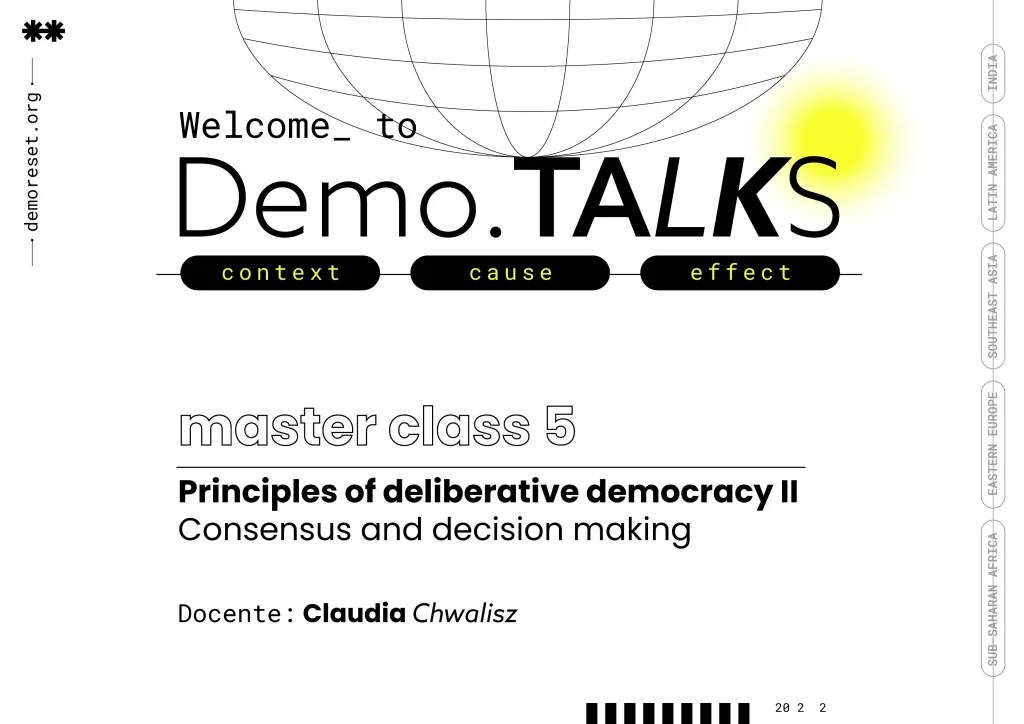Masterclass

Principles of deliberative democracy II: Consensus and decision-making
05/MasterClass

Claudia Chwalisz
Claudia is the lead author of the first OECD report on deliberative democracy: Innovative Citizen Participation and New Democratic Institutions: Catching the Deliberative Wave (2020; co-authored with Ieva Cesnulaityte), and she led the development of the OECD Good Practice Principles for Deliberative Processes. She oversaw the development of the OECD Evaluation Guidelines for Representative Deliberative Processes (2021) is the author of a new OECD paper on Eight Ways to Institutionalise Deliberative Democracy (2021). She co-ordinated the OECD Innovative Citizen Participation Network of leading international practitioners, academics, public servants, artists, and designers, and she edited the OECD’s online digest Participo.

Principles of deliberative democracy II: Consensus and decision-making
Reflect on how to manage disagreements and decide when to seek consensus in deliberative spaces.
Collective decision-making processes and consensus building.
- 0:00 - Introduction
- 5:08 - What kind of decisions can be made in the deliberation spaces
- 7:46 - What conditions make full participation possible for all?
- 16:46 - How might deliberative processes guide institutions toward fully representative decisions?
- 21:30 - What is the importance of consensus in deliberative democracy?
- 28:36 - Methodologies or types of processes for deliberation
- 34:29 - How to make everyone cooperate?
- 38:24 - Can these kind of processes could tend to shift policies when implemented from the Global South?
- 46:48 - Conclusions